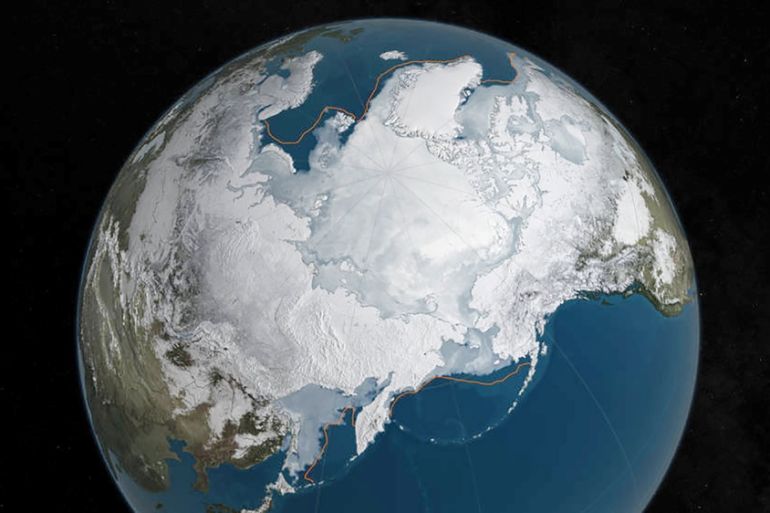Sea ice cover at both poles hit record winter lows
Researchers say the sea ice sheets in the Arctic and Antarctic regions is the smallest in the 38-year satellite record.

The extent of sea ice at both poles has hit new record lows for this time of the year, according to US and European scientists.
The disappearing sea ice comes as the planet marks three consecutive years of record-breaking heat, raising fresh concerns about the accelerating pace of global warming.
Keep reading
list of 4 itemsAfter the Hurricane
World’s coral reefs face global bleaching crisis
Why is Germany maintaining economic ties with China?
|
|
The Arctic ice sheet typically reaches its highest level in early March, but on March 7 this year it stood at 14.42 million square kilometres, the smallest in the 38-year satellite record, data from the NASA-supported National Snow and Ice Data Centre (NSIDC) showed on Wednesday.
Similarly, NSIDC researchers said that on March 3, “sea ice around Antarctica hit its lowest extent ever recorded by satellites at the end of summer in the Southern Hemisphere”.
Record-breaking heat
The Arctic sea ice maximum has dropped by an average of 2.8 percent a decade since 1979, NASA said.
The thaw is harming indigenous peoples’ hunting livelihoods on the ice and threatening wildlife such as polar bears. It also makes the region more accessible for shipping as well as oil and gas exploration.
READ MORE: Into the wild of Antarctica – Scientists, robots and ‘pancake ice’
For the past two years, however, Antarctica saw record high sea ice extents and decades of moderate sea ice growth.
“There’s a lot of year-to-year variability in both Arctic and Antarctic sea ice, but overall, until last year, the trends in the Antarctic for every single month were towards more sea ice,” said Claire Parkinson, a senior sea ice researcher at NASA.
“Last year was stunningly different, with prominent sea ice decreases in the Antarctic.”
Scientists are still unsure what this record low in the Antarctic means, but the shrinking sea ice will expose more water to the sun’s rays in summertime, which can accelerate global warming.
Dark blue water soaks up more of the sun’s heat than white ice, reflecting it back into space.
“It is tempting to say that the record low we are seeing this year is global warming finally catching up with Antarctica,” said
“However, this might just be an extreme case of pushing the envelope of year-to-year variability. We’ll need to have several more years of data to be able to say there has been a significant change in the trend.”